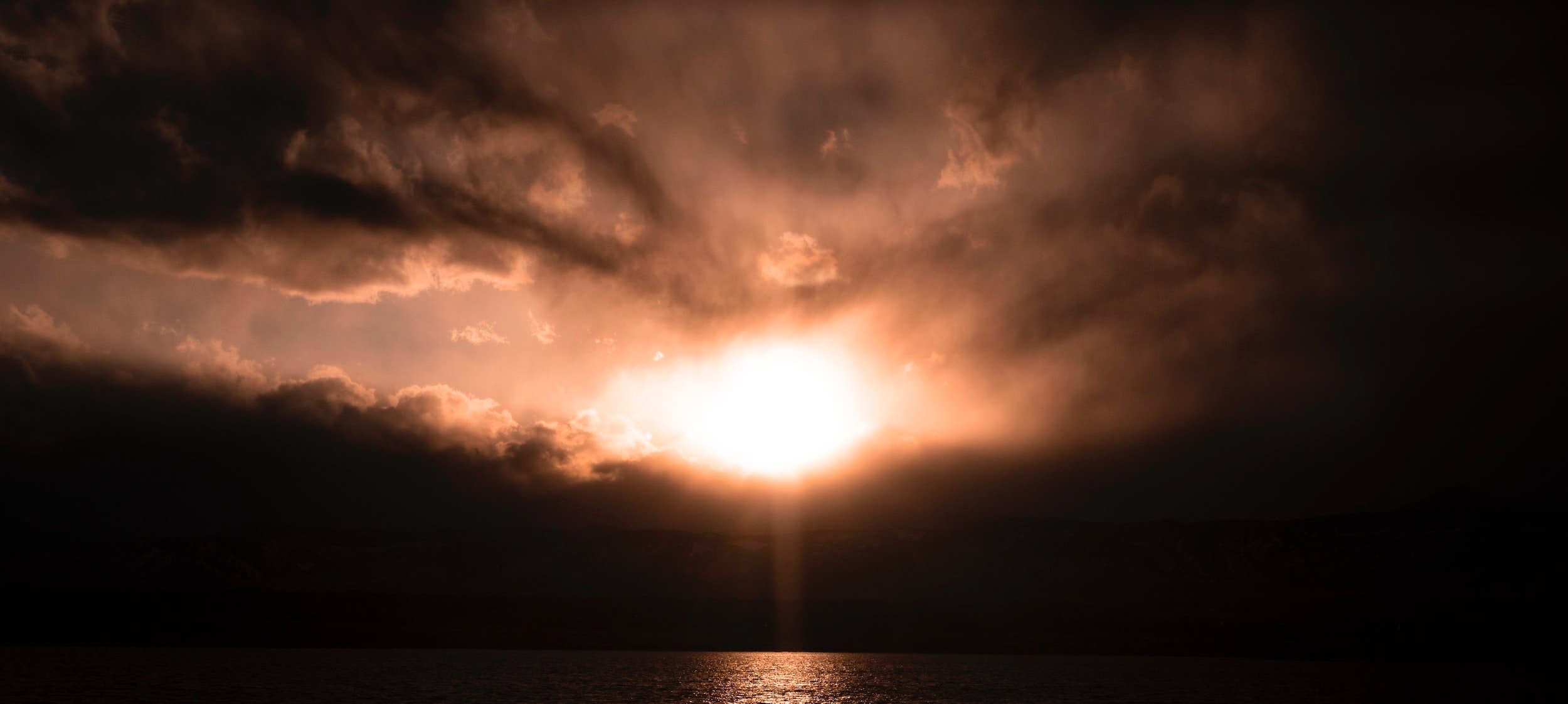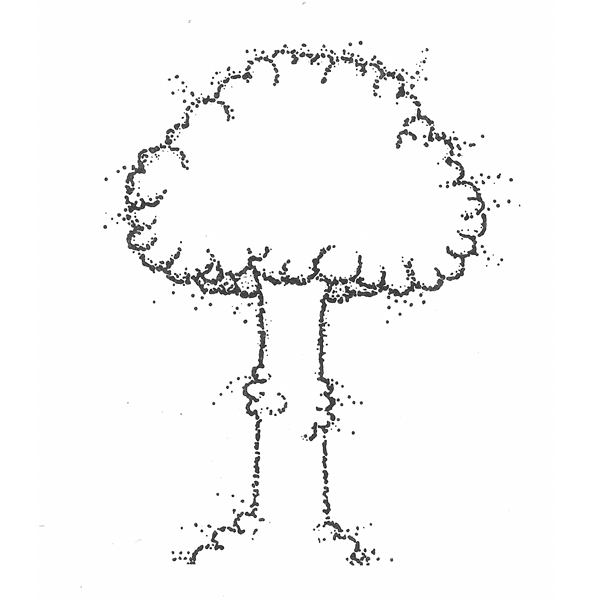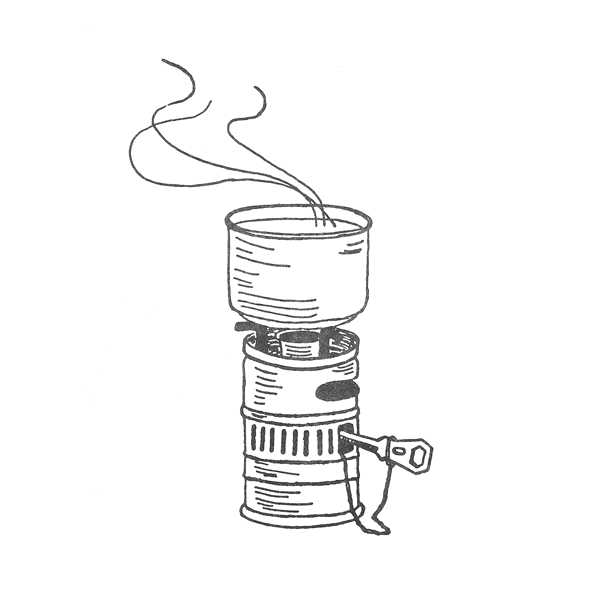
Nuclear Winter: Poetry of the Apocalypse
The Unthinkable

NUCLEAR WINTER is an attempt to think about the unthinkable consequences of a full-blown, planetary nuclear war. What are the thoughts and lives of those who survive the initial devastation in a world where the cold of winter is hot with radiation and even first snowfalls are ashen grey?
-
Nuclear Winter presents the viewpoints of individual nuclear holocaust victims, some adult, some children, in different locations and circumstances, who have survived the first shock of a major nuclear war. The poems are arranged in the order I wrote them between October and December 1985. They reveal a world in the grip of nuclear winter where snow and ice, changed weather patterns and grey clouded skies are made worse by the radioactive refuse of a planetary nuclear battleground.
My purpose is to alert the reader to the danger of a major nuclear war. I do not believe such a war is likely today, but it is more likely than it was ten or twenty years ago and if something is not done to prevent it, such a war will grow increasingly possible. Read the poems, see the consequences and avert the war.
(February 1986)
-
T.E. Lawrence wrote that the Arab revolt in the desert was a fight for individual freedom in which morality and the rights of the Arab nation were consumed in the quest for victory. Now, nearly three-quarters of a century later, another fight for Arab freedom from outside interference unfolds the specter of an even more potentially cataclysmic confrontation using the most sinister weapon of the First World War - poison gas - along with the ultimate invention of military destruction, the nuclear bomb. Have we come back to the Garden of Eden to demonstrate that we can now throw ourselves out?
The emergence of a less bipolar world has not led to the lessening of the threat of nuclear war. Every state capable of forging a nuclear weapon awaits only its own fevered scenario for its use, an attack always couched in defensive terms and consistently at the expense of innocent civilians and, if enough payers can be found, the destruction of humanity.
There are no poems from the desert because the margin of tolerance for stupidity is too narrow to encompass survivors of a nuclear battlefield. The desert is not so forgiving.
-
“I am thankful for the help and encouragement I received in the publication of this book, from Dick and Ginny Dromgoole, Milton and Martha Bell, and especially from my wife, Lindy.”
— Dan Mings
-
“These haunting passages by S. Daniel Mings starkly depict the horror of the nuclear catastrophe humans have built for themselves. These disturbing images are reality hopefully never realized.”
— Richard Turco, co-author TAPPS report on nuclear winter
“Dr. Mings’s message is without ambiguity.”
— Bill Moyers, journalist
Gone
Like Shakespeare’s Macduff
all my little ones are gone.
Disappeared one by one
under the mushroom forest.
Gone like the wild animals and people’s pets.
All these lost and I merely tabulated
their disappearance and went on.
But now my little ones are gone.
I did not know the little children would die first.
It’s wrong to be alive when they are dead.
—a man
Carpathian Mountains
Europe
Curse
I am sick to death of it,
tired of reminding you
to close the shelter door, recirculate the air,
check the damn levels.
I don’t care anymore, waste everything.
Open it all up and fry yourselves.
I hope you all enjoy it when I’m gone
and you can’t find a radiation suite that works
or a food processor in running order
or anything.
God gamma damn ray you to death.
—a woman
Sierra Nevada Mountains
North America
Ride
I miss driving a car
fast along a highway.
No fuel now for that,
although the highways are mostly still there
somewhere under the snow and ash.
I used to love to drive at night
and watch the stars.
To go out a night now
is to freeze;
and even if that did not seem so bad,
you cannot see the stars.
—a woman
Ozark Mountains
North America
Not My Fault
I’m not responsible for it happening
the way it did.
There’s nothing I could have done
to stop it.
Everyone procrastinated about it
until the end.
Now most are gone, slow or fast,
except the deep shelter ones,
and they have no one left to blame
except themselves.
—a man
Grand Teton Range
North America
Somewhere in a Bunker
Somewhere in a bunker
someone knows they are responsible
for this conflagration of our planet.
Crouched, huddled in the dark
they must realize what they’ve done
and regret the loss.
Or are they sitting comfortably
at a bright computer console
soullessly tallying the statistical
report on how we won the war
and lost the future.
—a woman
Upper Missouri Valley
North America
Little Victories
Today the stove works
and I can move my hands again.
The cold is like a wrestler
who grips you tight
and makes every movement difficult.
I used to love the winter,
when I was warm indoors;
But this winter has no end I’ll see,
and my stove is almost out of fuel.
—a man
Lapland
Europe
Mechanical Pencil
I covered every shelter contingency –
air, water, food, fuel.
All were thoughtfully stockpiled against
the unthinkable happening
which has happened to us.
All except pencil lead which fits
my mechanical pencil.
In about 350 words my lead
will run out with no refills,
and I have an entire Armageddon
to chronicle.
—a man
Brittany Peninsula
Europe
Gamma Waves on the Beach
I bask on the radioactive beach,
the gamma waves lap at my white blood cells
warming me to the marrow of my bones.
The sunlight and waves
are a last sensual reassurance of God’s love
before the cold and radiation sickness begins.
I and my swallowed capsule and what’s left
of my white blood count will go to sleep
here on the beach and dream of a tomorrow.
—a young woman
York Peninsula
Australia
Nightwatch
While the others sleep
I stay up late
and monitor the instruments
for radiation leaks.
One morning they will find me
slumped over in my chair
but until then, the equipment and a blanket
keep me warm.
—a man
Ob Marshes
Asia
War Historian
I have the unique honor
of writing the definitive
concluding paragraph
on the history of man:
Gosh,
it was an accident;
it’ll never happen again.
—a man
McMurdo Sound
Antarctica
A Child’s Christmas
The child has asked me if
Santa has a radiation suit
to protect him outside
the shelter;
I got around the chimney part
by substituting air ducts;
but now the child is convinced
that Rudolf is suffering
radiation burns on his nose
and it’s hard to change the bandages
when you’re laughing and crying
at the same time.
—a woman
San Joaquin Valley
North America
Earthrise
The earth has become so bright
covered in clouds and snow and ice;
blue green has changed to grey
like Athena’s eyes.
The wisdom of the goddess
is lost on earth,
but here at the moonbase
we know our air purifiers
will let us watch
a few more earth rises.
—a woman
Sea of Tranquility
Luna
Silo Ten
We live in silo ten
where a missile was.
We make jokes on the shortage of grain
inside a silo.
It’s not too bad here though –
above freezing, and some light.
At first we waited for someone from town
to come out and join us.
But we guess no one’s left above ground.
Is that our fault? Soldiers must obey orders.
What if it had only been a drill?
—a man
Great Plains
North America



